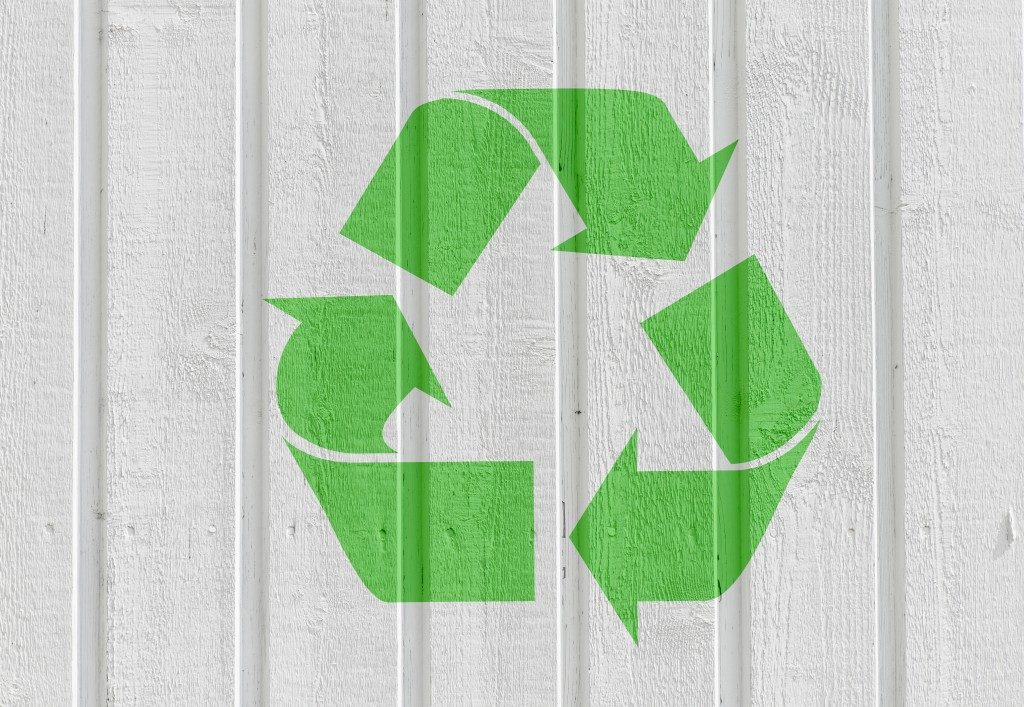Recycling is the process of converting waste materials into new products. Any effort that goes into reusing and recycling old products plays a part in caring for the environment.
It’s no secret that recycling is important in today’s world. According to the Department for Environment, Food and Rural Affairs, the UK generated 222.9 million tonnes of waste in 2016; the residential sector contributed to more than 80 per cent of the total amount. With wastage reaching record levels in the UK over the past years, the government is implementing the European Commission’s Circular Economy Action Plan. One of the targets within the plan is for the country to recycle at least 50 per cent of household waste by 2020. By 2017, the household recycling rate reached 45.7 per cent.
If you consider household waste to recycle, fizzy drink cans, milk cartons, water bottles, newspapers and cardboard might be the first things that come to mind. However, there are a many other items that you may not consider as recyclable, so throw away.
Here are some items that you might find surprising:
Dentures
Dental prosthetics, or false teeth, may seem an odd thing to recycle. However, many dental practices do accept old dentures for recycling. If your local dentist is unable to provide a recycling service, the Japan Denture Recycling Association is known to collect old dentures from around the world, and remove the metal.
Mattresses
 In the UK, an estimated 167,000 tonnes of mattress end up in landfills every year. Mattress recycling has emerged as an effective business opportunity in recent years due to landfill pressures and environmental concerns. The recycling facilities separate the wood, metal, foam, fabric and plastic. Once separated, these items are recycled and sold to scrap metal merchants or rug making companies, among others. Once you’ve decided to replace your saggy mattress, consider recycling. It could become part of an expensive carpet or garden furniture.
In the UK, an estimated 167,000 tonnes of mattress end up in landfills every year. Mattress recycling has emerged as an effective business opportunity in recent years due to landfill pressures and environmental concerns. The recycling facilities separate the wood, metal, foam, fabric and plastic. Once separated, these items are recycled and sold to scrap metal merchants or rug making companies, among others. Once you’ve decided to replace your saggy mattress, consider recycling. It could become part of an expensive carpet or garden furniture.
Contact Lenses
A recent research article showed several studies from different scientists found tiny pieces of plastics in fresh water, waste water and even drinking water. These tiny plastics are called microplastics. Contact lenses contribute to the trillions of microplastic particles already in the water supply. With an estimated 20 per cent of the 3.7 million contact lens users flushing their old lenses down the toilet, that translates into billions of microplastic particles added to the environment every year. Some recycling companies have partnered with eye health products companies to create programmes for used lenses. So the next time you or a friend think of disposing of old lenses, check for the nearest drop off locations for recycling.
Cigarette Wastes
It’s a little known fact, but cigarette butts are made of cellulose acetate plastic. This kind of plastic absorbs toxic substances like tar, lead and arsenic. In the UK, a cigarette waste mail-in recycling programme is gaining popularity. During the process, the butts are separated into their paper, tobacco and plastic parts. The first two are composted, while the acetate is melted and repurposed into plastic products.
Communities across the country understand the importance of recycling. Many programmes are being established to recycle items that were not recyclable before. Reach out to your local recycling centre to find out what items can be donated.
